Pakistan warns India of deep strikes
ISPR chief Lt Gen Chaudhry says response will target eastern economic hubs if provoked again
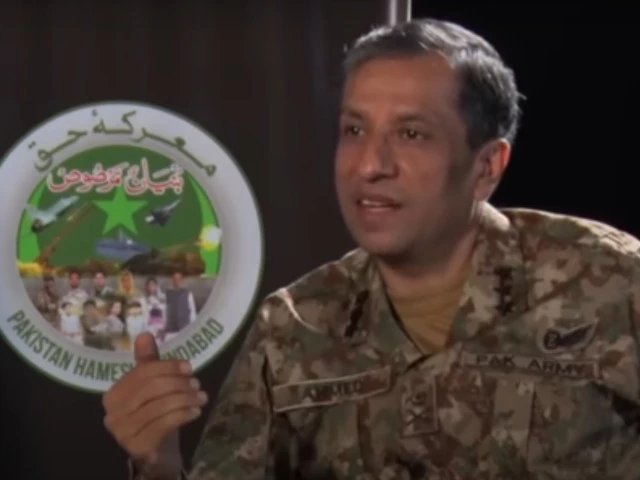
In a sharp response to Indian Prime Minister Narendra Modi's reported resolve to retaliate militarily over any terrorist attacks, Pakistan's military has warned that any Indian aggression would be met with decisive force — beginning with strikes deep inside India.
In an interview with The Economist, Inter-Services Public Relations (ISPR) Director General Lieutenant General Ahmed Sharif Chaudhry rubbished rumours that Army Chief Field Marshal Asim Munir might be positioning himself for the presidency.
When asked how Pakistan would react if India repeated any act of aggression, Lt Gen Chaudhry, the chief military spokesperson, warned that India must understand it could be struck anywhere by Pakistan.
Lt Gen Chaudhry said that Pakistan would begin by striking deeper within India. "This time, we'll start from the east of India," he said. "They [India] also need to understand that they can be struck everywhere," he added.
Lt Gen Chaudhry's remarks came in the wake of rising Indian rhetoric and accusations. The statement marks one of the strongest retaliatory warnings from Pakistan's military in recent times and comes amid heightened tensions between the two nuclear-armed neighbours.
Earlier in May, Pakistan and India engaged in a four-day military confrontation, triggered by an attack in April on tourists in Indian Illegally Occupied Jammu and Kashmir (IIOJK), which New Delhi blamed on Islamabad.
In response to India's missile strikes on civilian targets inside Pakistan, the country's armed forces launched a large-scale retaliatory military action — named Operation Bunyanum Marsoos — targeting several Indian military positions across multiple regions.
Pakistan downed six Indian fighter jets, including three Rafales, and dozens of drones. After at least 87 hours, the war between the two nuclear-armed nations ended on May 10 with a ceasefire brokered by the US.
The success of Operation Bunyanum Marsoos has been praised as a "historic military victory". The operation was also hailed during a federal cabinet meeting chaired by Prime Minister Shehbaz Sharif. Following the victory, Field Marshal Munir's stature rose significantly both at home and abroad.
His recent meeting with US President Donald Trump in Washington — where Trump reportedly said he was "honoured" to meet the Pakistani army chief — further solidified his growing international profile. Trump credited Munir with playing a key role in halting the conflict.
The army spokesperson moved swiftly to dispel rumours surrounding Field Marshal Munir's future role in politics. Amid growing speculation — particularly on social media — that the army chief may be positioning himself for the presidency, the DG ISPR categorically denied any such ambition.
"These rumours are completely baseless," Lt Gen Chaudhry stated. "There is no truth to claims that Field Marshal Munir is vying to become the president of Pakistan." His clarification echoed similar remarks made last month by the country's political leadership.
Following Gen Chaudhry's remarks of "deep strikes", the Indian government circles and the media had launched a disinformation campaign aimed at misrepresenting his comments and linking them to Bangladesh. However, Pakistani officials have strongly rejected such "ridiculous claims".
The officials here said that the statement was intended to convey Pakistan's readiness to deliver a powerful and strategic response to any Indian provocation, adding that it referred explicitly to targeting deep inside India's eastern economic hubs in case of aggression, not involving any third country.
Sources said that the DG ISPR's reference to the "East of India" clearly pertains to India's own economic heartlands, which include cities such as Kolkata, Jamshedpur, Ranchi, Bokaro, Rourkela, Bhubaneswar, and Patna.
These areas host critical infrastructure including industrial zones, energy production centres, ports, and major IT and data hubs. "Any strike on these centres in the event of a conflict would represent a deep incursion into Indian territory, not just a border skirmish," an analyst said.
The propaganda push from India comes amid growing internal pressure on the Modi government. New Delhi appears to be using a renewed Operation Sandoor 2 narrative as a diversion — accompanied by baseless accusations, fabricated terror plots, and vilification of Pakistan.
Pakistani officials reiterated that the country's stance remains principled and consistent: Pakistan is a peace-loving nation that has emerged as a regional stabiliser. However, they warned that peace should not be mistaken for weakness.

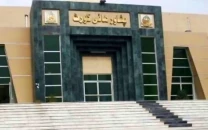

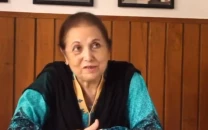

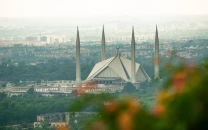
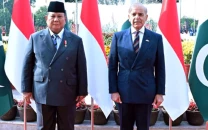














COMMENTS
Comments are moderated and generally will be posted if they are on-topic and not abusive.
For more information, please see our Comments FAQ